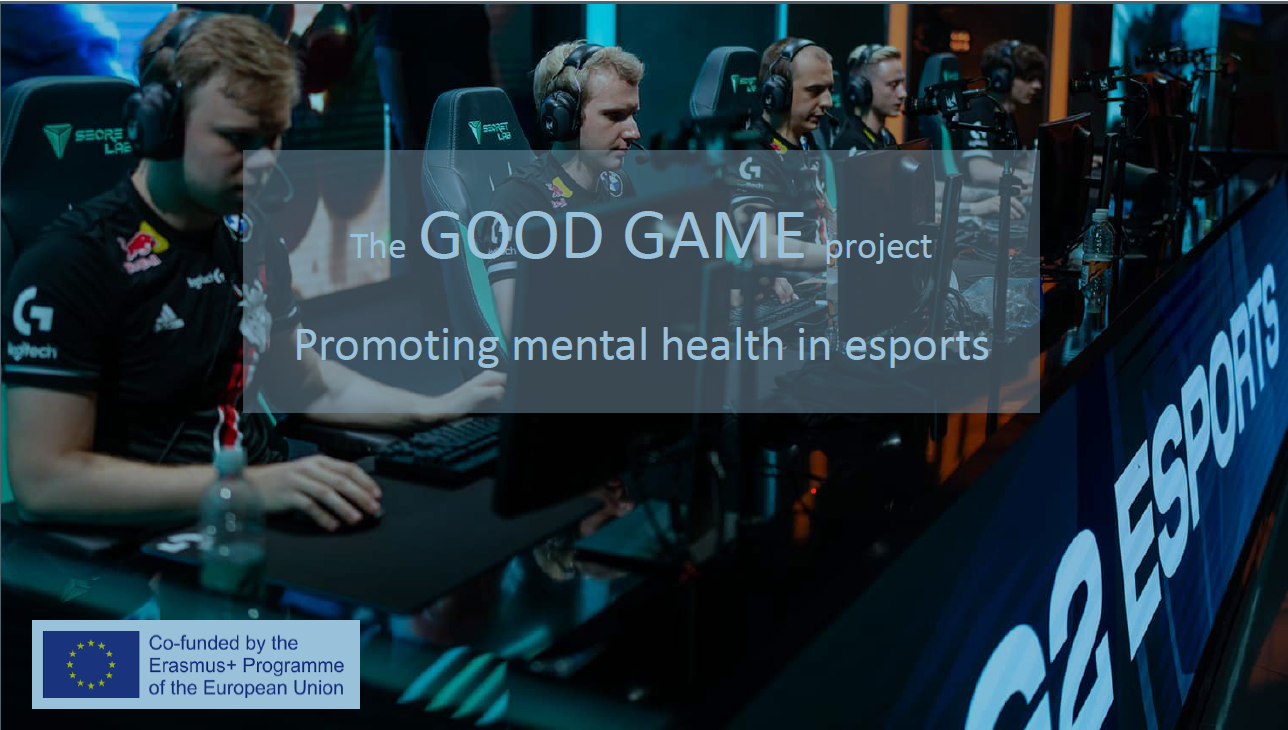Promoting mental health in esports: kick-off meeting of the GOOD GAME (GG) Erasmus+ Sport project
IRE-UAB is partner in the Erasmus+ cooperation partnership in field of sport project participated by 7 partners from 6 countries to be developed from January 2024 to December 2026. IRE-UAB main team is comprised by Andrés Chamarro, Iván Bonilla and Adrián Diaz.

Unique and collaborative partnership to directly address current and relevant needs for mental health interventions within esports.
The popularity of video games has grown exponentially over the past decades. In addition to a booming market for recreational gaming, this has led to a rapid growth of the esports industry, with 921 million viewers worldwide in 2022 and an annual revenue of up to 1.4 billion dollars.
As Esports are defined as “competitions where individuals or teams play video games – typically in front of spectators – either in-person or online, for entertainment, prizes or money” (European Parliament, 2022, p.4), E-athletes are those “individuals who compete in any esports to achieve an in-game ranking or who compete in a formalized competition” (Bubna et al., 2023).
The potential value and benefits of esports are increasingly recognised. Nevertheless, preliminary evidence suggests esports participation can be highly stressful and have a potential negative mental health impact. Some of the mental health concerns in esports include symptoms of depression/anxiety and sleep disturbance (Monteiro Pereire et al., 2021) or related to esports stressors (Smith et al., 2022) and lifestyle habits (training hours, sleep) (Lee et al., 2021). Such findings highlight the urgent need for novel mental health interventions tailored to esports athletes.
Main aim and vision: to develop and evaluate a mental health promotion intervention within the European esports context. More specifically, the aim is to develop a multicomponent and multilevel online psychoeducational intervention, targeting multiple areas to promote positive mental health.
Specific objectives:
- To assess the mental health of esports athletes, as well as examine key psychosocial risk factors and protective resources, within a comprehensive multi-national European sample.
- To develop contextually informed modular online psychoeducational resources and tools to promote esports athletes’ mental health.
- To implement and test the relevance, applicability, and effectiveness of the online psychoeducational intervention with a group of end-users (i.e., esports athletes, coaches, parents) involved in the applied partner organisations.
- To successfully complete the project by means of systematic project management and coordination.
- To optimise impact and maximise dissemination of the educational resources at the EU level.
To facilitate dissemination and maximise impact, the psychoeducational intervention will be delivered via a Massive Open Online Course (MOOC). Each module of the MOOC will contain basic psychoeducational material, practical exercises, and a supporting video clips.
The expected impact ‘GG’ Project is:
- Increasing awareness on the topic of mental health in esports.
- Advance our understanding of the relationship between esports participation and mental health.
- Developing new preventive mental health interventions in esports.
- Facilitating cooperation related to mental health between esports, education and health stakeholders.
The Project consortium, coordinated by Vrije Universiteit Brussel is formed by applied partners - G2, RISI (Rafíþróttasamtök Íslands), Esport United and International Federation of Esports Coaches (IFOEC) – and academic partners - UMEA University and Universitat Autònoma de Barcelona.